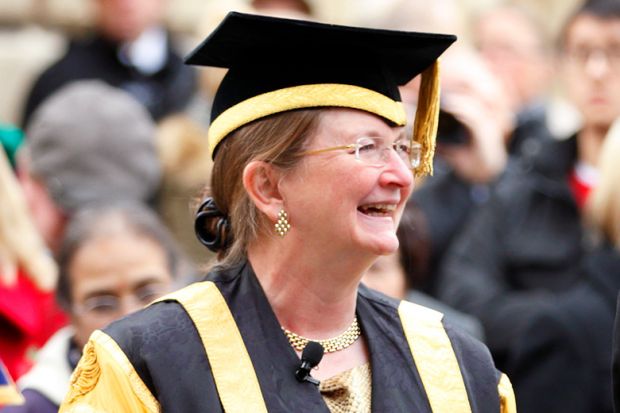The vice-chancellor of the University of Bath has narrowly survived a vote of no-confidence by the university’s senate, despite staff unanimously supporting a motion for her to resign.
Just 19 of the 37 members of the senate voted in support of Dame Glynis Breakwell in a secret ballot, with 16 voting no confidence in her as vice-chancellor, and two abstentions.
Earlier this week, staff unanimously supported a motion that called for Dame Glynis, and chair of council Thomas Sheppard, to “resign with immediate effect”, according to the University and College Union.
Staff also said that they would join students in protest at a meeting of the university’s main governing body next week if there were no resignations.
The vote follows the publication of a critical report by the Higher Education Funding Council for England on 20 November into Bath’s governance surrounding the setting of pay for senior leaders.
The report criticised examples of “poor governance” and the “flawed” handling of a university court vote that blocked a motion censuring the university’s arrangements for setting executive pay.
At a university court meeting on 23 February, a motion was proposed to express concern to council “at the lack of transparency and accountability of the remuneration committee and the decisions the remuneration committee has made in the past year”.
This motion was defeated by 33 votes to 30 after Dame Glynis and at least five others whose pay is set by the remuneration committee voted against it, according to the Hefce review.
Dame Glynis has repeatedly come under fire for her salary after Times Higher Education revealed that her £451,000 pay and benefits package awarded in 2015-16 made her the UK’s highest-paid vice-chancellor. The case is back in the limelight again this week after it was revealed that her 2016-17 pay and benefits rose to £468,000.
A spokesman at the University of Bath said that Dame Glynis “expressed her hope” that the council would accept all the recommendations in Hefce’s report and implement them “as soon as possible”.
She also “said she wished she had not herself voted in the motion raised at the meeting of court in February and apologised to senate for doing so”, the spokesman said.
Michael Carley, president of Bath’s UCU branch, said that Dame Glynis and Mr Sheppard are “living in a different reality if they think they have the support of their staff”.
“They may have been able to rely on senior management to narrowly survive the senate no-confidence vote, but about 400 members of staff voted unanimously for them to go earlier yesterday,” he said.
“It has been a very difficult few months at the university and we are astonished that they are trying to cling on, especially after the damning Hefce report and after staff and students are so clearly demanding change. The events of the past couple of days will only harden our resolve to make our feelings very clear at Thursday’s council meeting.
“It is time for a real change in how the institution is governed. The UCU and the other unions want to play a full part in restoring the university’s reputation as a centre of teaching and research excellence.”


